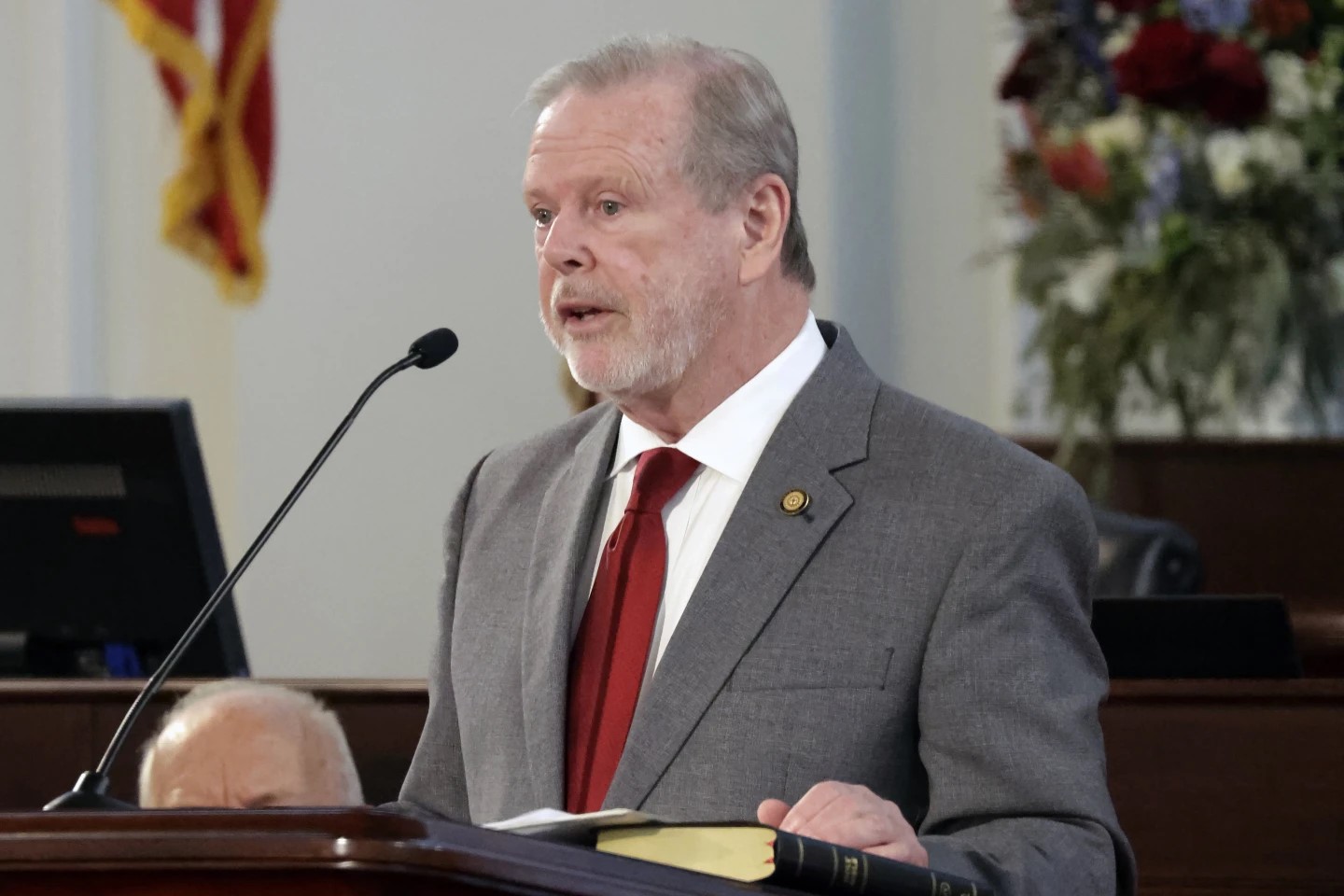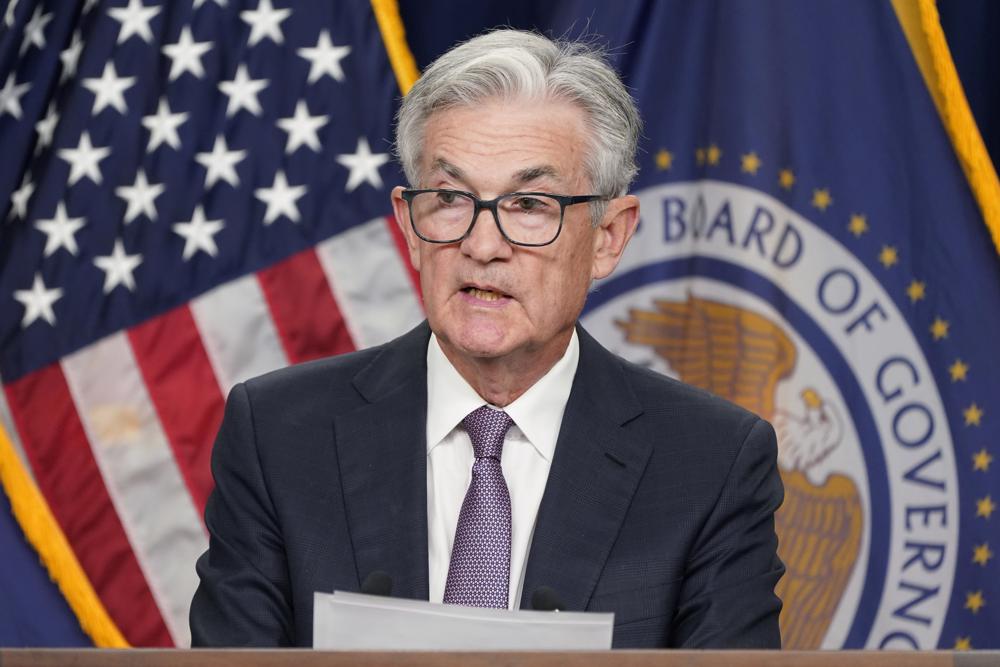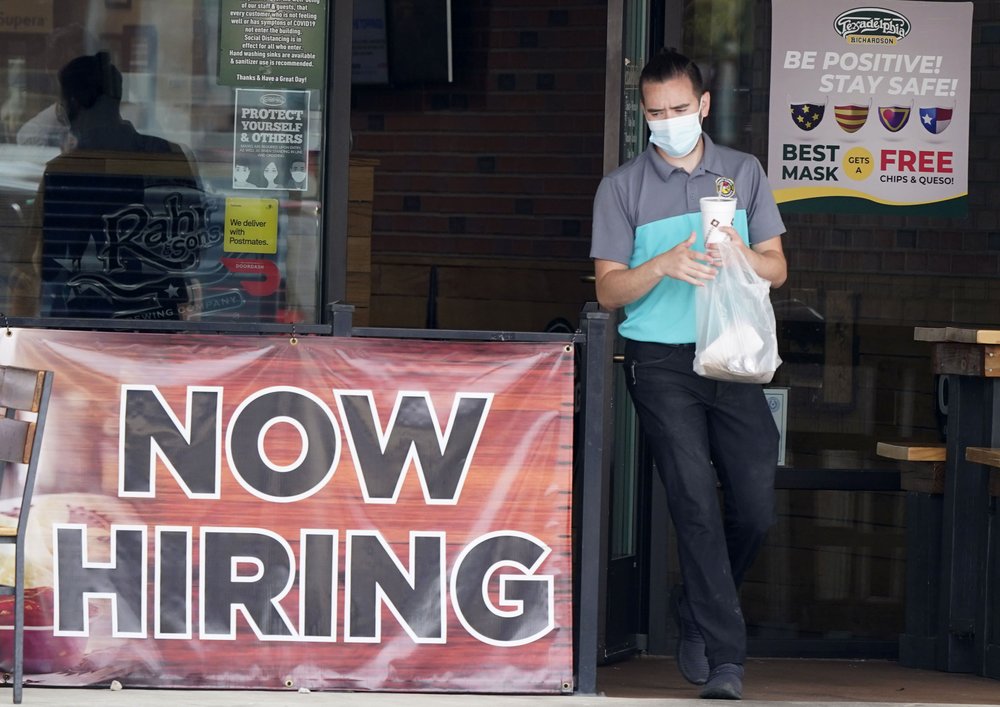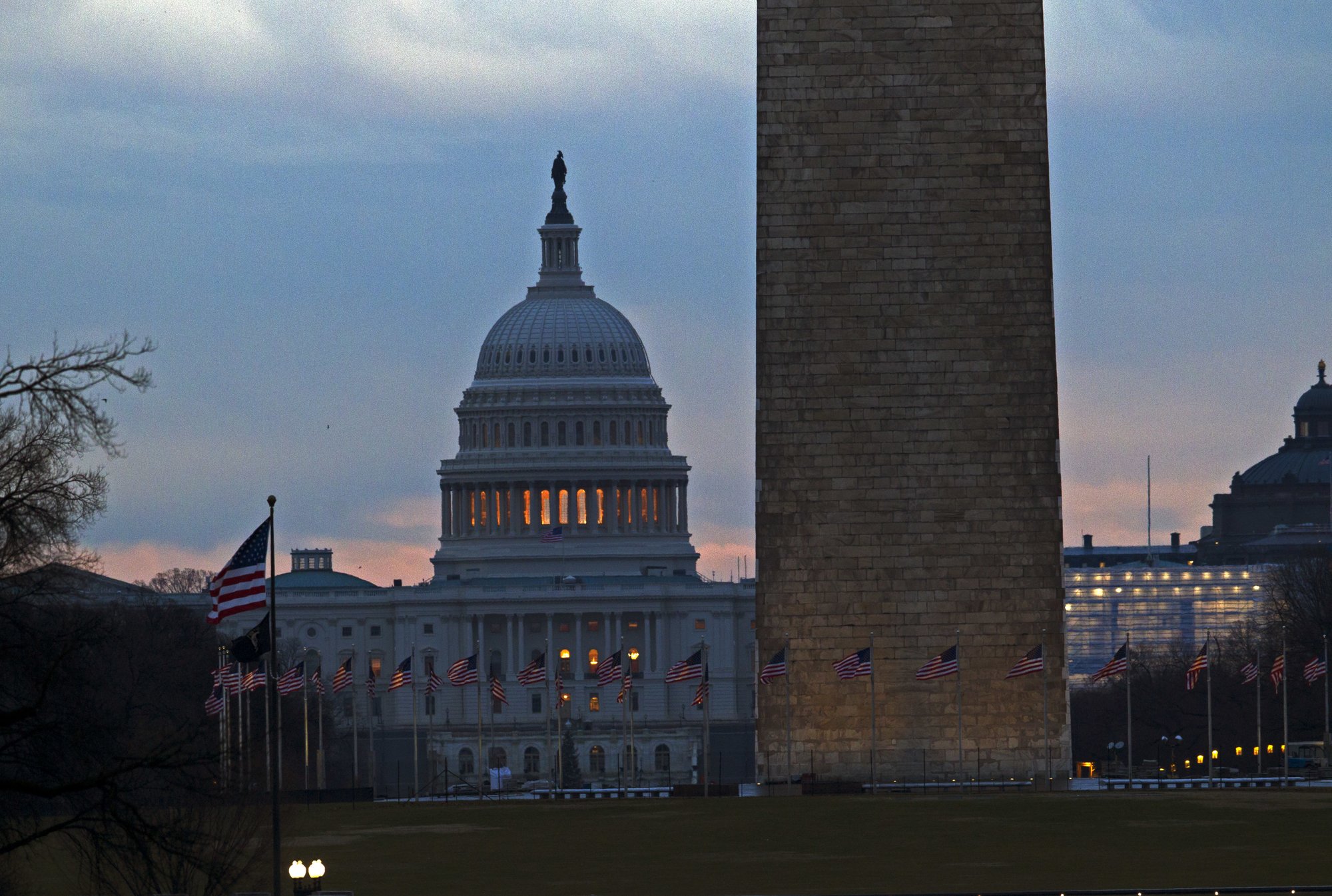An economic alarm bell has sounded in the U.S., sending warning signs of a possible recession ahead.
Yields on 2-year and 10-year Treasury notes inverted early Wednesday, a market phenomenon that shows investors want more in return for short-term government bonds than they do for long-term bonds.
It’s the first time that has happened since the Great Recession and it can be a sign that investors have lost faith in the soundness of the U.S. economy.
What appeared to be a slight thaw in trade relations between the U.S. and China that had sent markets sharply higher Tuesday was quickly forgotten Wednesday.
At the opening bell the Dow tumbled 400 points.
The yield on the benchmark 10-year Treasury note hit 1.622%, falling below the yield of a 2-year, which was 1.634%. The last inversion of this part of the yield curve began in December 2005, two years before the Great Recession made landfall.
An inversion like the one taking place Wednesday has preceded the last nine recessions dating back to 1955, though it doesn’t always mean recession is imminent, as in 1966 when no recession formed after an inversion.
When a recession might hit, if it does, is tricky. Months or even years have passed after an inversion takes place, and before economists can connect the two.
But the crossing of the 2- and 1-year Treasury sent a ripple through U.S. markets Wednesday.
The Dow fell 1.6%, and the S&P 500 fell 1.4%. The Nasdaq fell further.
The cost of gold, considered a safe haven for investors, traded well above $1,500 per ounce and continued to climb.
With fears of a global economic slowdown growing even sharper, the price of crude, already down 10% in the past three months, fell more than 3%.
Longer-term yields have been falling due to anxiety that President Donald Trump’s trade war could derail the global economy.
Other parts of the curve had already inverted, beginning late last year. But economists in each instance have cautioned not to make too much of it.
The latest inversion, however, is considered more of a tripwire.
Uncertainty over what comes next in the trade war could unnerve businesses and consumers enough that they begin cutting spending. Consumer spending accounts for about 70% of economic activity in the U.S.
That could start a vicious cycle where companies cut back on hiring, which feeds through to more damage for the economy.
On Wednesday, Macy’s became the first major retailer to report quarterly earnings.
The company fell vastly short of expectations and cut its profit expectations for the year. Its shares plunged 16% and it dragged down the entire sector, with companies like Nordstrom, Kohl’s and the Gap leading the S&P in losses.
Banks were also hit hard, with economists already expecting more rate cuts to combat a slowing economy.
Related Stories
‹

North Carolina Revenue Predictions Fall with Recession RiskState officials have lowered anticipated revenue collection, largely over rising economic uncertainty and the risks of a U.S. recession.

European Central Bank Does Not Foresee Recession and Cuts Interest Rates AgainThe European Central Bank, which sets interest rates for the 20 countries, does not expect the bloc to slide into recession.
![]()
As the Causes of US Inflation Grow, so Do the DangersWritten by CHRISTOPHER RUGABER What keeps driving inflation so high? The answer, it seems, is nearly everything. Supply chain snarls and parts shortages inflated the cost of factory goods when the economy rocketed out of the pandemic recession two years ago. Then it was a surge in consumer spending fueled by federal stimulus checks. Then Russia’s invasion […]

Powell’s Stark Message: Inflation Fight May Cause RecessionWritten by CHRISTOPHER RUGABER The Federal Reserve delivered its bluntest reckoning Wednesday of what it will take to finally tame painfully high inflation: Slower growth, higher unemployment and potentially a recession. Speaking at a news conference, Chair Jerome Powell acknowledged what many economists have been saying for months: That the Fed’s goal of engineering a […]

Unemployment Drops to 6.9% and U.S. Adds a Solid 638,000 JobsU.S. employers added 638,000 jobs in October, a solid pace though far fewer than needed to regain most of the jobs lost to the pandemic recession just as new viral cases are setting record highs. The gain suggested that a tentative economic recovery is still intact even as it faces a surging viral outbreak. October’s […]
![]()
New Companies Face Tough Task Overcoming Pandemic, RecessionJulie Campbell had to rethink her new wallpaper business before she could sell her first sheet. Campbell launched Pasted Paper in February, but soon after, the coronavirus forced the cancellation of the trade shows where she expected to introduce her wallpaper to prospective retail customers. Suddenly, the $30,000 she’d invested in creating the wallpaper was […]
![]()
EU Forecasts ‘Recession of Historic Proportions’ This YearThe European Union predicted Wednesday “a recession of historic proportions this year” due to the impact of the coronavirus as it released its first official estimates of the damage the pandemic is inflicting on the bloc’s economy. The 27-nation EU economy is predicted to contract by 7.5% this year, before growing by about 6% in […]

Democrats See Opening on Economy, Resist Cheering RecessionCampaigning under the stifling August sun, Joe Biden assailed President Donald Trump’s trade war with China, accusing him of squandering a strong economy and putting Americans’ financial security at risk. But he was quick to add that he was not hoping for the worst. “I never wish for a recession. Period,” the former vice president […]
![]()
Worried About a Recession? Protect Yourself but Don't PanicIf the threat of a recession gives you pause when it comes to your personal finances, remember now is a time to prepare, not panic. Worries about the economy increased this week when a fairly reliable recession warning emerged from the bond market. But without a crystal ball, it remains unclear when a recession might […]
![]()
Budget Watchdog says No-Deal Brexit will Spur UK RecessionThe U.K. will plunge into recession if it leaves the European Union without a divorce deal, with the pound plunging in value and the economy shrinking by 2% in a year, Britain’s official economic watchdog said Thursday. The Office for Budget Responsibility made its assessment as chances of an economically disruptive no-deal Brexit appear to […]
›






